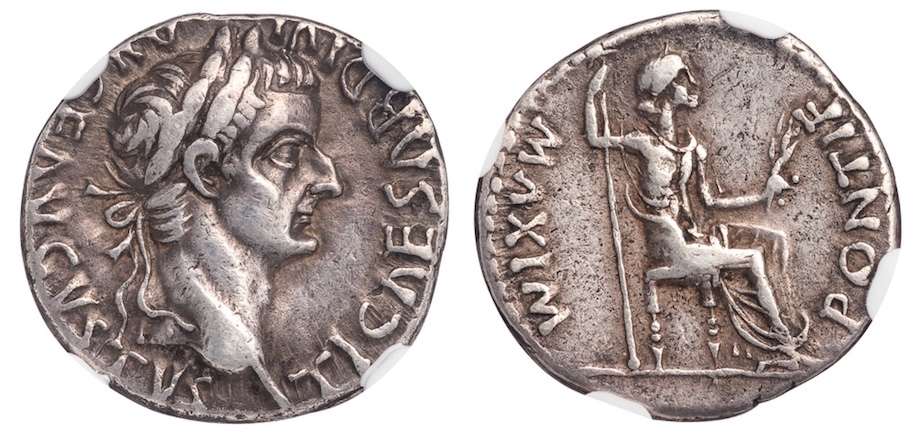If you prefer to listen to the sermon as offered from the pulpit, click the play button here:
Delivered at the United Church of Jaffrey
October 15th, 2017
Matthew 22:15-22 | Excerpt from an interview with Mahatma Gandhi
When Christ says “Render unto Caesar those things that are Caesar’s” he is stating a law. It means “Give back to Caesar what is his – I will have nothing to do with it.” In this incident Christ enunciated the great law, which he exemplified all his life, of refusing to cooperate with evil. When Satan said to him “Bow down and worship me,” that is, cooperate with me, then Christ said “Get behind me Satan.” When the crowds around him wanted to take him by force and make him a military king, he refused to cooperate with them as their method was evil.
— Mahatma Gandhi
Take a glass and fill it with water.
If you are very careful and you stop pouring at precisely the right moment, the water will actually rise above the level of the brim without overflowing.
There is a scientific explanation for this phenomenon that has something to do with the surface tension of the water molecules.
But as a child I was not interested in the science.
I liked to fill glasses with water, trying to achieve the elusive moment when the spell was cast, and the water seemed to defy the expectations of gravity.
And then…
After I admired the effect for a moment or two…
I couldn’t help, but I would put that extra drop in – that one extra drop, which would break the surface tension, and send the water pouring over the edge of the glass.
*
During the three years when I was at Yale, studying to become a minister, I struggled, as almost everyone in Divinity School does, with how my developing spiritual life was rewiring my identity.
Sometimes I was filled with joy – as when, during a particularly beautiful worship service, my spirit soared in a way that I had never before experienced.
At other times – and it could be during the very same worship service that, moments before, had taken me to new heights – I could be stricken with a deep, unsettling suspicion that maybe it was all hogwash.
Transcendence and crippling doubt were a hairs-breadth from each other.
The presence of the Divine felt a bit like that glass of water – a mysterious condition that I had to carefully encourage, and as soon as it seemed within my reach, it would overflow into a chaos of conflicting emotions.
Painters, musicians, dancers, poets – the artist, in any medium, who has developed the merest competence with his or her form, can attest to the fact that this principle is also true of beauty.
The line that separates the achievement of pure beauty from the collapse into utter, abject failure, is perilously thin.
And if all this were not enough – the principle we are considering this morning is also true of human relationship…
Have you ever noticed that the very same qualities that led you to fall in love with someone, are often the flipside of other qualities that drive you absolutely bananas!
This is emotionally confusing!
It would be a lot more convenient for everyone involved the chaotic, ugly, and frustrating could be safely stowed in a box in the basement while the transcendent, beautiful and adorable could be displayed prominently on the dining room table – never the twain shall meet!
But, unfortunately, that’s not the case.
Opposites may be opposite, but they are not separate.
Flip a coin.
Heads or tails?
Love or frustration?
Beauty or failure?
Faith or doubt?
Caesar or God?
I call this principle the “Proximity of Opposites.”
*
In the gospel lesson for this morning that Sarah just read for us, the Pharisees test Jesus.
“Teacher, (they say…) we know that you are true, and teach the way of God truthfully, and care for no man; for you do not regard the position of men. Tell us, then, what you think. Is it lawful to pay taxes to Caesar, or not?”
In this question, the Pharisees place the “way” God and law of Caesar is close proximity to each other.
Public life for the people of Israel at the time of Jesus had dominant influences – the influence of God, (through the religious traditions of the Jews) and the influence of Caesar – (through the colonial power of the Roman Empire.)
With respect to these two dominant influences, the Pharisees themselves were in a tricky position – among Jews, they derived their authority from being pious interpreters of God’s law, but in order to maintain their position, under Roman rule, they had to compromise with the laws of Caesar –
so it’s easy to see that the question that they asked Jesus was one that frustrated them…
Their power and position depended upon God and Caesar.
The proximity of opposites.
So they asked Jesus: Is it lawful to pay taxes to Caesar, or not?
To this quandary, Jesus responds in a manner that is reminiscent of a kindergarten teacher.
“Show me the money for the tax.” He says
When they bring him a coin, Jesus asks them to identify the face on the coin.
They said, “Caesar’s.”
Then he said to them, “Render therefore to Caesar the things that are Caesar’s, and to God the things that are God’s.”
I have always imagined that when Jesus gave this answer to the Pharisees he did so with a sigh…
“Huuuh… Render therefore to Caesar the things that are Caesar’s…”
I imagine Jesus is sighing, because I’ve always interpreted his response as a kind of compromise – as an acknowledgment that there are Caesar’s in the world, and that they are demanding, and that, like it or not, we have to accept this reality.
In the past, I have even used the phrase “Render unto Caesar” as a kind of shorthand for necessary evils like insurance deductibles, property taxes, and commercial breaks – things that we have to sigh and put up with in order to, eventually, reap the benefit we are searching for.
But today, this interpretation – the one I have always had –leaves me unsatisfied.
Today, we have taken some pains to setup this idea that I’ve called “the proximity of opposites” so I want to use it to interpret this text.
*
As you all know, in addition to being your minister, I also teach a class in religious studies at the Northfield Mount Hermon School.
For the last several weeks, my students and I have been reading and discussing the life and work of Mahatma Gandhi – the great non-violent revolutionary who led India’s independence movement from Great Britain.
Gandhi was a devoted Hindu, but he had a deep respect for all religions, and held a particularly warm place in his heart for the life and teachings of Jesus Christ.
It just so happened that a couple of weeks ago my students and I read a passage from an interview that Gandhi gave while he was in prison in 1922 – a passage that deals directly with the gospel lesson we are considering this morning.
Sarah read it for you earlier.
Of this gospel story, Gandhi had the following interpretation:
It means “Give back to Caesar what is his – I will have nothing to do with it.” In this incident Christ enunciated the great law, which he exemplified all his life, of refusing to cooperate with evil.
This is a very different interpretation from the one I gave.
For me, “Render unto Caesar” meant “you have to put up with the fact that the world demands things of you.”
But for Gandhi, “Render unto Caesar” is kind of like a return policy. If some worldly force (like Caesar) demands you to cooperate, simply refuse to have anything to do with it.
My interpretation was resigned.
This interpretation is resolute.
What’s more, this resolute interpretation makes use of the “Proximity of opposites” principle.
The fact that opposites (like God and Caesar) are close together, does not necessarily make things confusing – it could help us.
If we trained ourselves to be attentive, we could use the proximity of opposites as a method of identifying evil.
And once we identify the evil, we “give it back to Caesar” – that is have nothing to do with it… Shun it.
*
A present day example.
We live in moment in the history of our country, in which division is being actively used as a means of political gain.
The head of the executive branch of our nation’s government, announced his candidacy for the highest office, by announcing that Mexicans are rapists and murderers.
The new Attorney General has reinstated sentencing guidelines that set us back to a time when black and brown people will continue to be disproportionately incarcerated.
Travel bans, stricter refugee quotas, and increasingly active deportation policies are changing the personality of the American cultural landscape.
All this is true.
But yesterday, when Brenda and I went to the New Hampshire United Church of Christ Annual Meeting we joined all those present to unanimously approve a resolution that instructed the UCC in New Hampshire to
“…lift up our prophetic and moral witness against unjust systems of power and privilege that keep our immigrant, refugee and asylum-seeking neighbors from living with the safety and dignity they deserve as human being and as children of God.”
Is America’s racial and ethnic diversity its greatest source of division, or is it America’s greatest gift?
This question places opposite claims in proximity.
This proximity of opposites brings the issue into clarity, and helps us to know what to embrace and what to utterly reject.
As a Christian, my answer – the unanimous answer of the New Hampshire UCC – is clear.
If you give me a political climate that is gathers its energy from division, racism and bigotry…
I give back to Caesar. I will have nothing to do with it.”
Amen.



